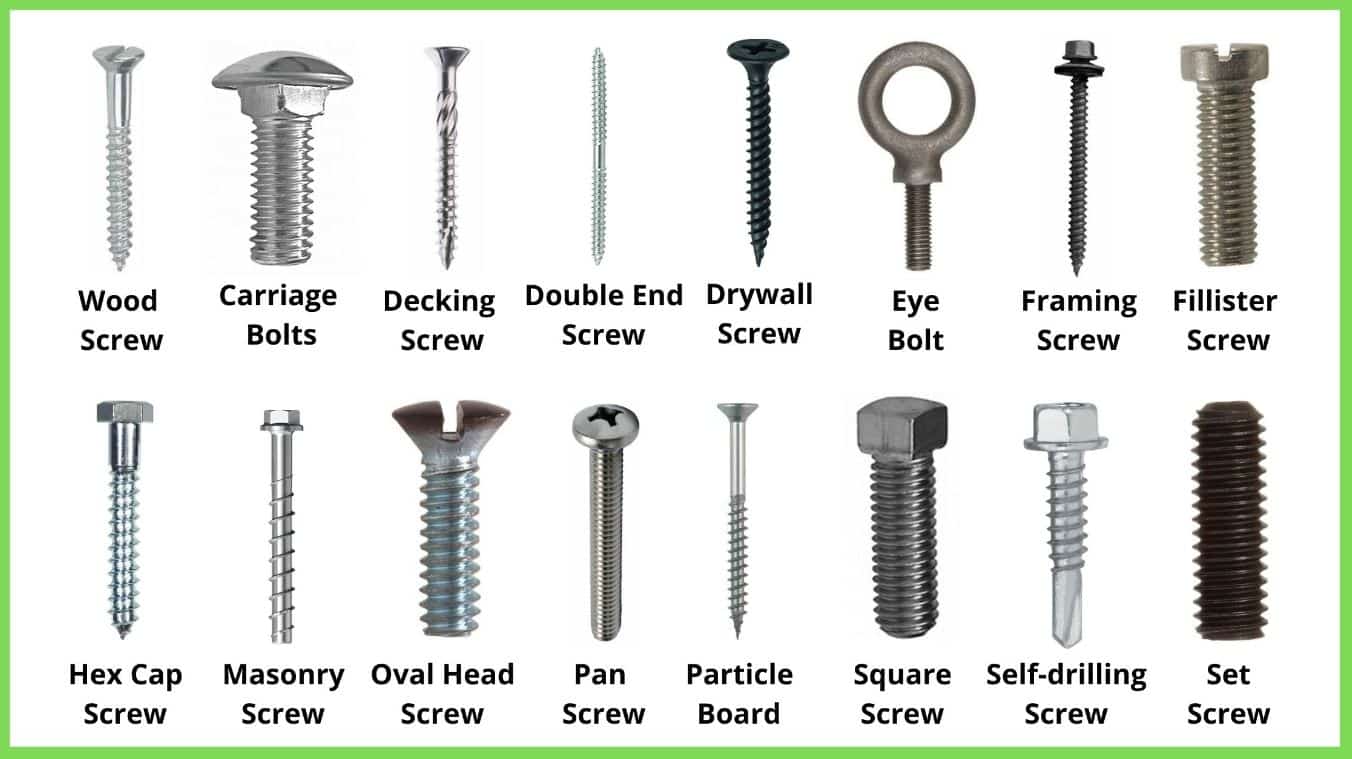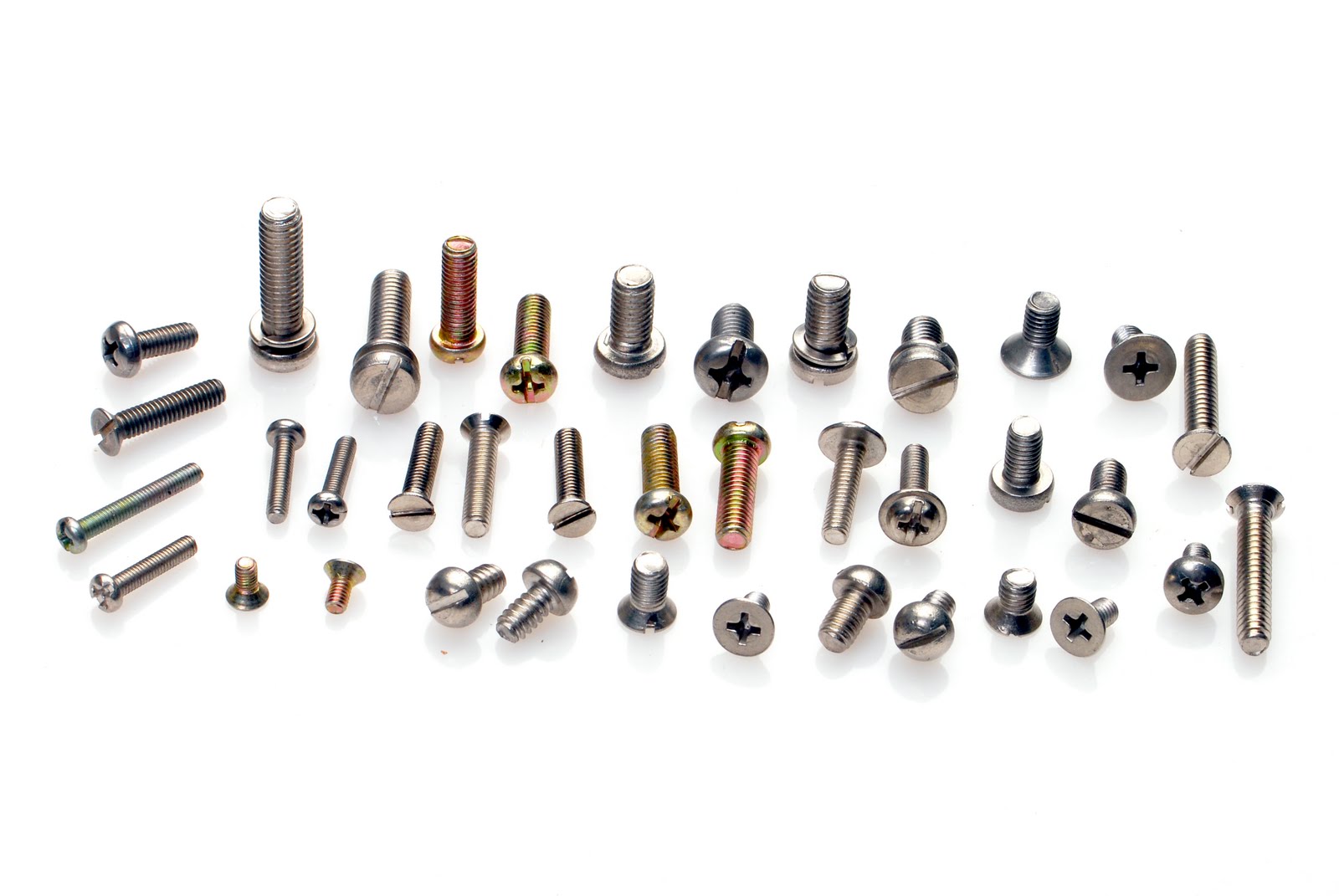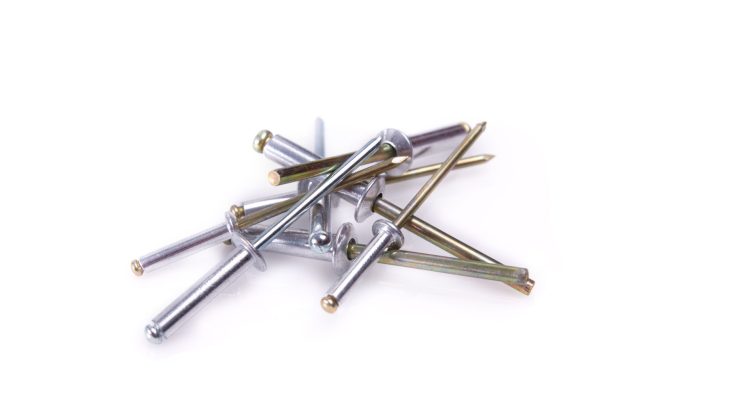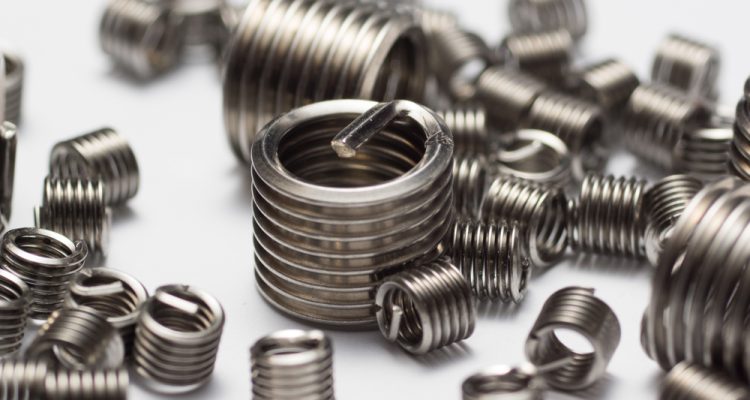
What Are The Different Types Of Bolts And Their Uses
This article introduces various bolt types, including common bolts such as hex bolts and carriage bolts, as well as special bolts such as anchor bolts and eyebolts. briefly explains the materials used in bolt manufacturing, such as carbon steel and titanium, and provides guidance on selecting bolts for specific environments, emphasizing the importance of material selection in highly corrosive or high-temperature environments.
Common Bolt Types
Hex Bolts
- Hex bolts (six sided heads) : The 6 keys of this fastener head give enough torque to use with a wrench or socket based tool. Ideal for tough fastening applications, thanks to their durable construction
- Applications: Structural, automotive and even mechanical where a good grip is imperative depending on applying force as secures beams or the engine working parts + heavy machinery.
- Price: The price of hex bolts range from $0.15 to as much as $5 each, depending on the size, material and strength level. They tend to be a bit pricier than others, particularly specialty-grade or larger hex bolts made from alloy steel.
- Durability: The most common metals used to manufacture hex bolts are carbon or stainless steel this combination gives the material a lifespan from 10-20 years, depending on environmental conditions including exposure to moisture and chemicals.
- This is evident in consecutive financial years, given high demand coming from the construction and engineering sectors demanding robustness. Many of the countries all over, depend to some extent on these growths locally with what is a local hex bolt market space.
Carriage Bolts
- Special Belvoir Cross JumpsFeatures: Easily recognizable by their rounded heads but with a square section directly under the head, rendering carriage bolts as an anti-rotation kind of bolt perfect for timber applications.
- Typical Applications: Commonly used where a neat appearance is required or when the bolt needs to be well above the surface without turning and fitting into a countersunk hole.
- Price: Carriage bolts cost between $0.20 and $6 apiece (according to length, diameter, and galvanized finish for outdoor use)
- Life: Galvanized or Stainless Steel carriage bolts will not rust out and should last more than 15 years in outdoor environments.
- Applications: Favorited by carpenters and home maintainence hobbyists when a finished look is needed as well as secure fastening. This is particularly true of residential construction and home improvement markets.
U-Bolts
- Characteristics: U-bolts receive their name from the fact that they are shaped like a “U” and have threaded ends to receive nuts by which they can be fixed around pipework, or other cylindrical objects.
- Applications:Widely in car suspensions, plumbing systems and pipe fittings for the connecting of pipes to walls or other devices.
- Cost: U-bolts are available at around $1 – 20 depending on the material and size (carbon steel, stainless steel)
- Stainless-steel U-Bolts have a Lifespan of between 10 long periods (in harsh conditions) to as much as about 20 years.
- Falling Demand: However, demand in automotive and plumbing industries have fallen marginally due to growing adoption of twin wall composite pipes that are substantially flexible and possess higher strength-to-weight ratio.
Anchor Bolts
- L-shaped or J-shaped Species : anchor bolts are embedded in concrete to Anchor structural elements to the foundations. Necessary for the integrity of the ballpark.
- Application : Fix the columns, machinery and other heavy equipment in building/bridge or community/HVAC construction.
- Cost: $0.50 -25 per bolt, Yes the reality is that depending on size of bolt or material and load carrying capacity a price for bolts varies.
- Expected Life: If correctly installed and shielded from a large amount of moisture and chemicals, anchor bolts can have an expected life span ranging 20-30 years.
- In construction and heavy industry use is unavoidable, so growth of anchor bolts market relies on wider infrastructure development/ renovation.
Eye Bolts
- Eye bolts ContinuedCharacteristics: Eye bolts, having a loop at one end for attaching hooks and ropes or cables, are also great when used in tandem with lifting equipment or to apply tension.
- Common Application: Widely used applications include hoisting heavy loads in construction and shipping, also anchoring points in safety harness systems.
- Price: Eye bolts cost $2 to $50 depending on size and material.
- Expected Life: The life of a eye bolts will depend on the intensity used and environment where they are being maintained, but we can expect them to last 5-15 years.
- Requirement: There is an ongoing necessity in areas involved with lifting and rigging products, focusing specifically on safety-related norms.
Tension Control Bolts
- Traits: Intended for application in no slip class connections as a pre tension device by using calibrated high strength collision bolts. The only one moving part and these foundations are the concave interface serration which breaks off when desired tension has been reached (Allfast / Camloc)
- Where to use it: Good for steel frame construction where accurate bolt tension is needed to keep a building standing.
- Cost: The cost of these specialized bolts is roughly from $0.50 to about 3$ each, based on the size and engineering needs
- Life: Tension control bolts can survive anywhere between 10 – 20 years depending on whether or not they are used in non-harsh environments.
- Need: Good demand by large construction projects which have steel structure as this is very reliable and easy in installation.
Flange Bolts
- As we know, considering their particular characteristics of having a circular flange below the head that helps with spreading the load under stress (because it will create friction during installation) they resist to high pressures without creating damage on assembled parts.
- Ideal Application: Automotive, Tight Spaces, Vibrate and Loosening Common Fastener
- Price: These bolts cost a relatively low amount $0.10 to $2, depending on size and specifications of the bolt chosen
- Durability: Flange bolts are popular for being able to handle common vibrations and have a lifespan comparable their surroundings, especially when those components use corrosion- or wear-resistant materials.
- Uses: Used extensively in the automotive and machinery industries as they provide better overall performance with greater vibration resistance, thus enhancing assembly reliability.

Special Bolts and Their Applications
Anchor Bolts
- Proicient friction within the concrete to keep them in place. This is critical for the transfer of loads on the structure to foundation.
- Application: These bolts are an integral part of building construction, highway sign structures, and tight circuit structure mounting on concrete base. They are integral in preventing skyscrapers crumbling to the ground mid-earthquake.
- Cost: It averages price ranges from $0.50 for standard, small bolts to up to $25 for large custom-fabricated anchor bolt patterns – such as those used in homes or office buildings under construction.
- Lifespan: Anchor bolts are offered in better quality options, and anchor bolts with a galvanized or stainless steel finish is resistant to environmental corrosion where they have an expected life of over 30 years (outdoor application).
- Demand: Demanperties: Thread capture bolts are designed for particular anchoring needs They get embedded with the concrete before it cures and differing shapes (i.e., L-shaped or J shaped) that create suffd for the anchor bolts is related directly to national construction, particularly in infrastructure and commercial sectors.
Eye Bolts
- Designs: The Eye Bolt is so named for the circular loop or eye situated on one end of such that helps in supporting lifting, rigging and anchoring. Its design enables fast and easy attachment to cables or ropes.
- Uses: In industries, they are used to lift heavy machines and other equipment with help of I bolt for lifting. In maritime use they attach boats to the edge of a walking path and in performance center, it suspends lights and Cape.
- Price: Eye bolts are priced from just a few dollars to as much $50, depending on the size of the eye bolt and its intended function.
- Durability: Eye bolts are expected to have a long lifespan, with some used in less-demanding environments lasting 15 years or more; however, those put under particularly high loads for extended periods of time and/or corrosive stressors – such as marine applications near saltwater – typically exhibit a shorter life unless they are specifically engineered to tolerate the conditions.
- Utility: Eye bolts, no matter what type they are in – Even Swivel Hoist Rings or Wire Rope Lifting Sling – remain indispensable to every industry that requires safe and accurate lifting activities.
U-Bolts
- Category: U-bolts are called so due to their sq. u-formed configuration, and these appliances find immense use in the help of pipework, conduits once more round objects. They have a curved body and two bolts threaded on the arms running through holes in it, secured with a nut for sturdy gripping.
- Application: U-Bolts are primarily used to support pipework, pipes through which fluids and gasses pass.
- Cost: It is an inexpensive process and cost can start from $1 for basic models to highest of around $20 in cases larger or custom sizes are required for industrial applications.
- When constructed with strong materials such as stainless steel and well looked after, U-bolts can easily live over 20 years in harsher environments.
- Purchasing: Because U-bolts are used across various industries, you can expect the demand for them to be fairly consistent as they play an important role in helping secure cylindrical objects.
Tension Control Bolts
- Identification: Tension control bolts (TC bolts) Tractor parts for construction, incorporate a mechanism that tells the installer when the correct tension is reached. This is a crucial feature in applications where maintaining the structural integrity requires precise bolt tension.
- USE CASES: These bolts are usually used in the construction of heavy structures such as steel buildings and bridges that have multiple nodes requiring a uniform bolt tension, which is significant for structural safety.
- According to the R&D team, you can expect APVs will cost between $0.50 and $3 each-not in line with standard bolts but a reflection of where we’re headed as materials (in this case fasteners) get more specialized due to application technology advances.
- Length of service: The majority of TC bolts are longer lasting than the structure that they secure (higher 20-30 years depending upon ecological elements).
- Other applications also require these fast, reliable and safe assembly methods in the burgeoning commercial construction industry where TC bolts are currently experiencing strong demand.
Flange Bolts
- Pros: Flange bolts are similar to standard bolts but have a built-in flange underneath the head. The flange also provides the function of a washer that is built into it and which spreads wear over a wider area, protecting against loosening due to vibration.
- ApplicationsThe provided built-in coupling is ideally suited for the automotive and machinery industries, where minimized assembly time and loosening resistance can be key.
- Price: Flange bolts do cost a little more than regular style of bolt because they have that built in flange, but range from $0.10 to about $2 per bolt(commonly).
- A longer lifespan: Their engineered design counteracts the loosening tendency from vibration, preventing them to die as long as your equipment does.
- Applications: Flange bolts are highly sought after in sectors that value mass production and maintenance, as they come with unique advantages.
Materials Used in Bolt Manufacturing
Carbon Steel
Carbon steel bolts are manufactured in largest running at the moment of take up little more strength and economic material most commonly used. Low to medium carbon steel bolts are typically used in commercial construction such as highway and bridge projects, in automotive applications where high tensile strength is not a priority. Case hardening the bolts will provide wear resistance on outer surface and at same time retain a soft core region to blunt impact. Another high strength steel is High carbon steel, often called as alloyed boron, chromium and manganese are used in the production of structural bolts. High-strength bolts may be used that have tensile strengths as high as 60,000 psi and conform to ASTM standards such at A307 for Grade B Bolts.
Stainless Steel
High levels of corrosion resistance means stainless bolts are commonly found in areas where parts are likely to be subject to rust. This is also why you over-tighten mudguard and rack fittings… 304 and 316 Stainless steel are the biggest grades used in this method. Molybdenum in grade 316 stainless steel of chloride laced environments, oxidizing acids and halides (such as sodium salt), a higher type are well suited for saline including the resistance. Additionally, stainless steel bolts are regularly employed for their looks as well since the aesthetic appearance and attractiveness make them perfect for visible parts of construction projects or any application where visual appeal is essential. Compared to carbon steel bolts, which often have the torque marks right on them already depending on their grade or strength), stainless steel bolts tend to be slightly softer and offer less in tensile strengths-generally no more than 70-100,000 psi.
Alloy Steel
Alloy Steel Bolts: Alloy steel bolts are comprised of carbon steel with additional alloying elements such as chromium, molybdenum and nickel. These bolts offer extreme tensile strength and sturdiness for high load bearing applications like heavy machine jobs. Alloy steel bolts that are heat-treated will become a high strength bolt referred to as ASTM A193 Grade B7 capable of resisting tensile forces up-to 125,000 psi. They are used in the oil and gas industry, power plants or other dangerous work environments where a failure of fasteners could ultimately result in serious safety hazards.
Titanium
High strength-to-weight ratio and excellent corrosion resistance classify titanium bolts. This makes them suitable for applications in industries such as aerospace, automotive and military where saving weight is very important without losing the mechanical strength of a bolted joint. Titanium bolts also offer better strength properties than many stainless bolt grades, with tensile strengths upwards of 160,000 psi. While they are useful, titanium bolts usually will be priced out over steel.
Aluminum
Due to their lightweight property and resistance to corrosion, aluminum bolts are often used in situations where automotive parts like spark plugs must be secured.AerospaceAluminum alloys take up a significant share of the metal consumption market. They are not quite as strong structurally to steel or titanium bolts, but for applications where security is NOT a high priority, they will do the job in place. They are frequently employed in non-structural uses where the fastener is rarely touched and also when there would be an advantage to a non-magnetic bolt.
Brass and Bronze
These brass and bronze bolts are commonly used in the applications which need highly resilience to corrosion, also electrical conductivity fragments alongside with traditional socket head cap screws that are employed. Common examples include applications like electricity and plumbing. They used brass bolts, which are softer and easier to cut than most metals so it makes up for a nice yet durable bolt left without corrosion. Since bronze is stronger than brass, bolts made from this material produce even more saltwater resistance to corrosion due to the added strength.

Choosing a Bolt for a Specific Environment
High-Temperature Environments
- Bolt Style: ASTM A193 Quality B7 Alloy metallic bolts
- Why EGC 207H by Wiseco: Doing a terrific job when it comes to engine qualifying tests, the following onset belong chromium-molybdenum precious metal attachment. This makes it possible for the bolts to retain their mechanical strength even at temperatures higher than 450°C (842°F). In environments under high temperatures and thermal expansion, they are essential as the two factors can promote bolt failures.
- Application Example: Often used for manufacturing boilers, pressure vessels and heat exchangers in power generation plants or chemical processing plant. Surviving such thermal stresses in these environments is a requirement for preventing structural failures: the results of which can be spectacular.
Corrosive Environments
- Stainless Steel fasteners, Grade 316 bolts are best suited.
- REASON FOR CHOICE: Grade 316 stainless steel contains an addition of molybdenum that gives the metal much improved corrosion resistance compared to other chrome-nickel-manganese steels. This is what allows it to be highly compatible in high-saline and chlorine-rich water conditions where lower grades would fail due to corrosion even faster.
- Application Example: Widely used in marine construction, for example the building of piers and docks wherever submerged in extreme conditions are guaranteed to take place, as well as manufacturing equipment utilized inside the handling associated with chemicals or even salty water.
Subsurface and Hydrology
- Bolt Choices: Brass or bronze bolts.
- COMP: These materials do not spark or magnetic which is needed in volatile environments to prevent accidental ignitions. The resistance of Zinc layer offers better corrosion & wear ability and specially used out doors, hot dipped bronze has an unpretentious appearance with a long life in unpleasant settings (wet or corrosive underground)
- Example Use-Case: Most commonly used in plumbing and underwater fixtures. At municipal water treatment plants, bronze bolts are selected for their durability under consistently damp conditions in which they will secure pumps and pipes.
Exposure to the Elements (Outdoor Use)
- Large Bolt Selection: Hot dipped galvanized carbon steel – plainFinish
- Why It Was Chosen: Galvanizing is a form of rust protection where the bolt is dipped to apply a layer of zinc that keeps moisture from getting between it and underlying steel. It is especially needed for outdoor adjustment bolts to compensate of rain, snow or undefined temperatures.
- Application: They are popular for outdoor signs, fencing and highway infrastructure. As an example, guardrails and signposts are held together with galvanized bolts that face constant exposure to the elements.
Conductive electrical environment
- Bolt Choice: Copper bolts.
- Why Chosen: High electrical conductivity, a great property for all the applications that must operate efficiently with current (circuitry etc) Copper bolts also are able to withstand corroding caused by electrical action, something that many ordinary metals disintegrate in a short period.
- Application Example: Widely used in the construction of electrical substations, earth rods are required for earthing which is necessary to divert an electric current into the ground from sensitive components as it makes contact with neutral case so they can avoid any kind of fault or fire.
Lightweight Applications
- Bolt Choice: Aluminum bolts.
- Choice Justification: Aluminum has substantial weight reduction qualities which can be beneficial in applications where extra weight could impair function or increase cost like with aerospace and automotive industries. While not as strong as steel, aluminum bolts are suitable for applications in which the primary load is non-mechanical.
- Applications: Example use in the assembly of interior components for aircraft and vehicles, especially when weight reduction is an important constraint to fuel efficiency or performance.
Vibration-Prone Environments
- Bolt Selection: Flange bolts with some locking attribute
- Why I Chose this: It has a flange to act as a washer and spread the loads, so the bolt won’t loosen from any vibrations. Locking features like nylon inserts or thread locking adhesives offer extra safety, preventing the bolt from loosening over time while subjected to dynamic loads.
- APPLICATION: Automotive and aerospace for engine component assembly. They guarantee the integrity of vital connections despite intense vibrations and constant movement while in operation.



